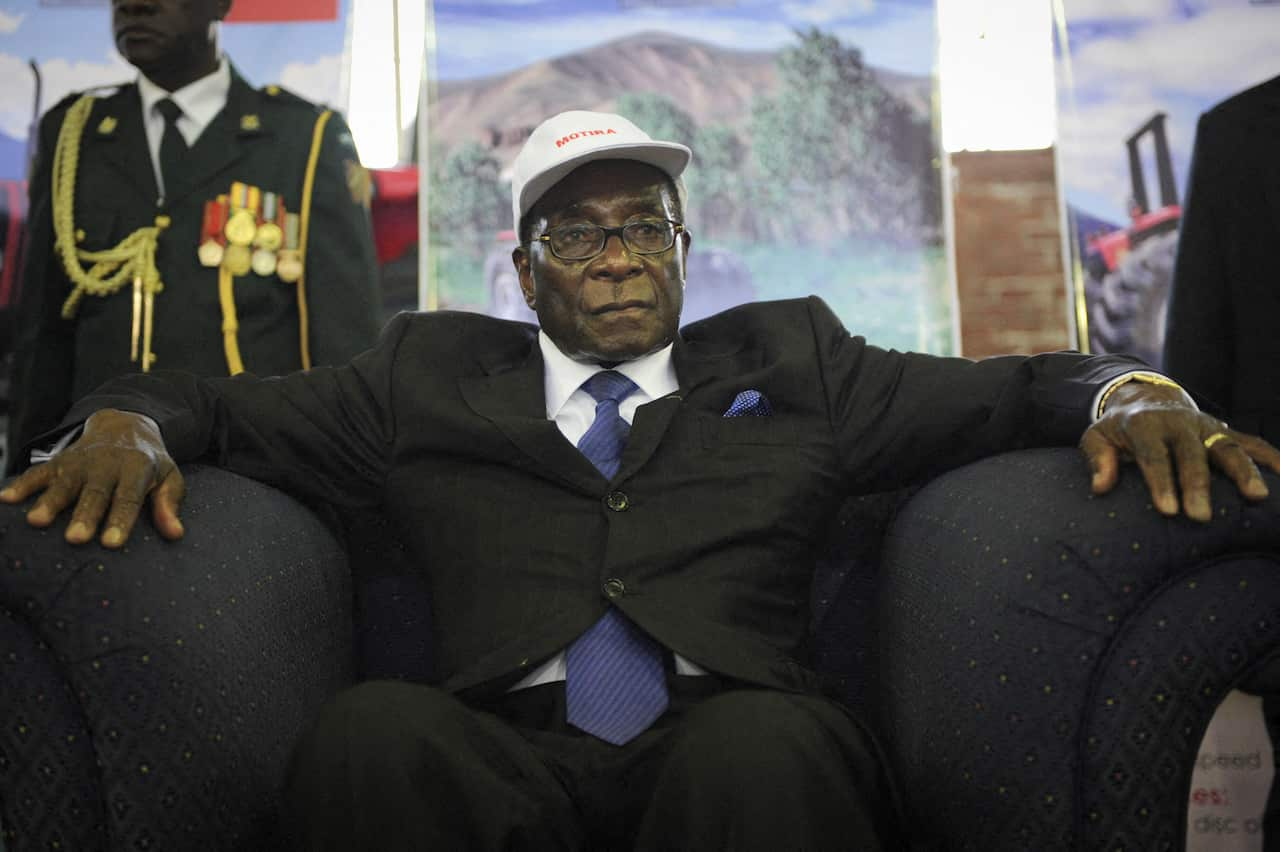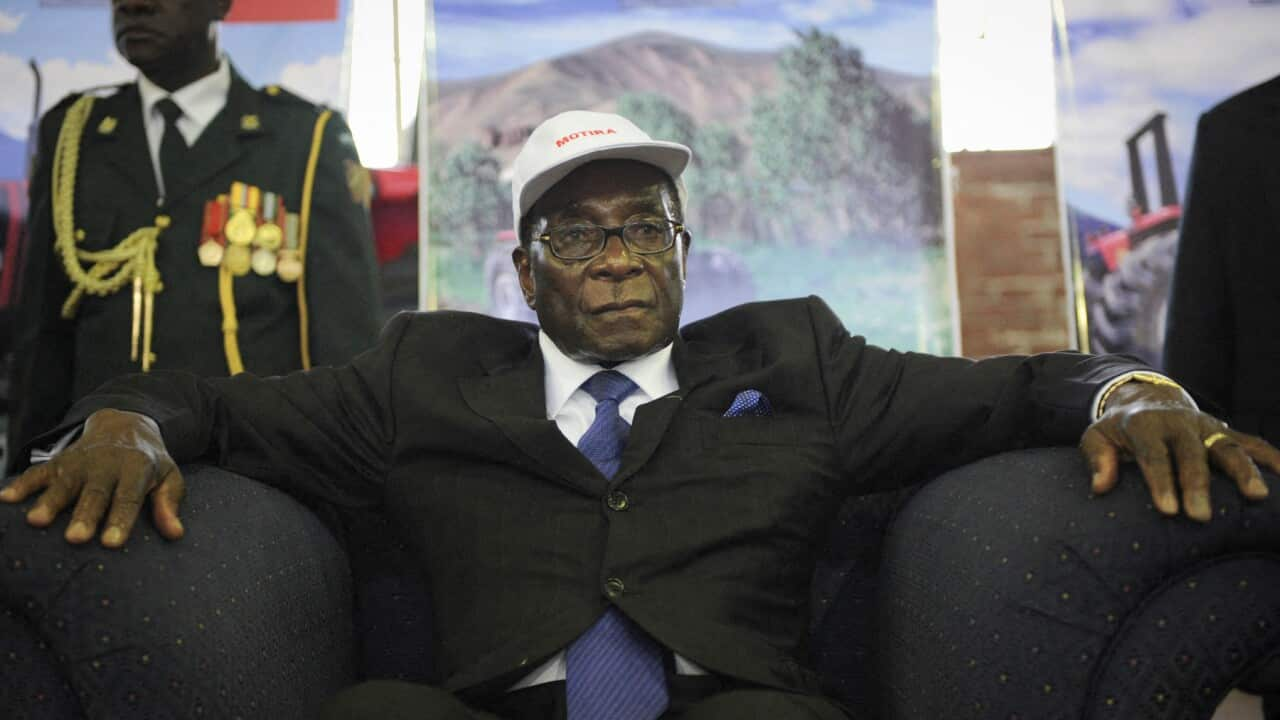He rose to power as an African hero and - in the eyes of many on the continent - he died as one.
But he leaves behind a mixed legacy.
Robert Mugabe made a visit to Australia in the early eighties, and La Trobe University's Doctor David Dorward says he remembers it well.
"It was in 1984. He came out to La Trobe University and gave an address and it was pretty impressive," he said.
"The audience was more than sprinkled with white Rhodesians who were quite hostile to begin with - and he charmed them." Just before his visit, his partner in the armed struggle - the leader of the Zimbabwe African People's Union, Joshua Nkomo was dismissed from government.
Just before his visit, his partner in the armed struggle - the leader of the Zimbabwe African People's Union, Joshua Nkomo was dismissed from government.

File picture taken shows Zimbabwe president Robert Mugabe in Harare on April 2010. Source: ABACA
The trades union leader was dismissed after the discovery of an arms cache in his Matabeleland province stronghold in 1982.
More than 20,000 people are estimated to have died in the Midlands and Matabeleland provinces.
And the massacres are believed to be one of the reasons Mugabe clung to power for so long, for fear of being brought to trial.
"He was saying: 'If I've done things wrong I hope you'll forgive me - I forgive you, we are all Zimbabweans', Mr Dorward said.
"That type of rhetoric - that was Mugabe in the early days of his administration."
When the violence ended in 1987, Mugabe changed the constitution to become executive President. Then there was the problem of powerful white farmers - they were less than one per cent of the population, but owned more than 60 per cent of the arable land.
Then there was the problem of powerful white farmers - they were less than one per cent of the population, but owned more than 60 per cent of the arable land.

Protesters demonstrate outside the Embassy of Zimbabwe in London to call on the leader of the country Robert Mugabe to resign on 18 November in 2017 in London. Source: Getty Images
When a constitutional referendum to strip them of their land rights failed in 2000, Mugabe supporters simply invaded, killing families in an organised campaign.
As the nation's main export - agriculture - suffered, the economy went into meltdown.
Inflation and unemployment skyrocketed.
Officially a parliamentary democracy, Mugabe continued to hold elections in Zimbabwe.
But they were plagued with allegations of vote-rigging and violence.
Over time, the hero of independence became an international pariah, stripped of honorary degrees and other accolades.
The long-time leader was removed from power in a coup in 2017.
Doctor Dorward said there will doubtless be a period of mourning declared in Zimbabwe by President Emmerson Mnangagwa.
"The current government is dominated by a man who was Robert Mugabe's head of security," he said.
"Mnangagwa will no doubt have some kind of state funeral.
"Zanu PF will forgive and forget, and it will all be great national mourning. Most Zimbabweans will be glad to see the last of Robert Mugabe."

